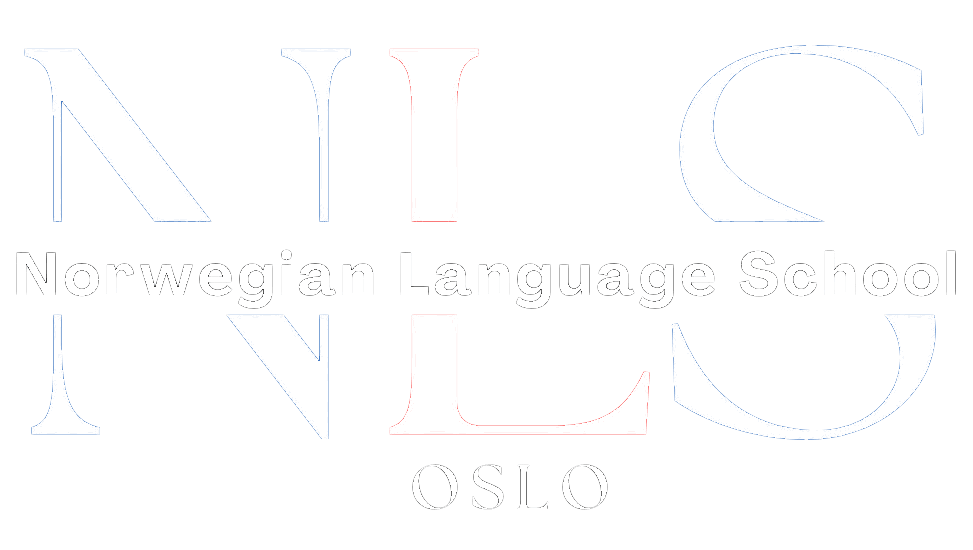
Navigating Business Etiquette in Norway Tips
Have you ever wondered how to effectively navigate the intricacies of business etiquette in Norway? Do you find yourself unsure about the cultural norms and Norwegian business customs that can make or break professional relationships?
In this article, we will provide you with valuable tips on understanding and mastering the business etiquette in Norway. By delving into the professional etiquette, communication styles, networking strategies, and dining customs in Norway, you will gain the necessary insights to confidently engage with Norwegian counterparts and establish fruitful collaborations.
So, let’s dive into this fascinating world of Norwegian business culture and unveil the key secrets to success!
Table of Contents
ToggleKey Takeaways:
- Understanding Norwegian business customs and cultural norms is crucial for successful collaborations in the country.
- Mastering professional etiquette is essential for conducting oneself effectively in a Norwegian business environment.
- Adopting the preferred communication style and effective networking strategies can build strong business relationships in Norway.
- Knowing the nuances of dining etiquette in Norway is important for building rapport and conducting successful business meetings.
- By following these tips, you will be able to navigate the professional landscape in Norway and build successful collaborations.
Professional Etiquette in Norway.
When it comes to conducting business in Norway, understanding and adhering to professional etiquette is essential for building successful collaborations. Norwegian business culture places a strong emphasis on professionalism, respect, and equality in the workplace.
In Norway, punctuality is highly valued, and being prompt for meetings and appointments is considered a sign of respect for others’ time. It is advisable to arrive a few minutes early to show your commitment and preparedness.
Professional attire in Norway is typically conservative and formal. Men often wear suits or blazers, while women opt for business suits or dresses. This reflects the country’s emphasis on professionalism and creates a sense of seriousness and respect.
In Norwegian business culture, individual contributions are valued, and decision-making is often consensus-based. It is important to listen actively and give everyone an opportunity to voice their opinions. Avoid interrupting or dominating conversations, as this can be seen as disrespectful.
Norwegians are known for their egalitarian values, which are reflected in the business environment. Hierarchies are relatively flat, and everyone is encouraged to contribute and participate. It is important to treat all colleagues and business partners with respect and equality, regardless of their position or title.
“In Norway, professionalism and respect are the cornerstones of the business culture. Embracing the country’s egalitarian values and adhering to the norms of punctuality and active listening will foster successful business relationships.”
When addressing your Norwegian counterparts, it is customary to use their first names, as Norwegians typically use informal language in professional settings. However, it is advisable to wait for them to invite you to use their first names as a sign of trust and familiarity.
Building personal relationships outside of work is also valued in Norway. Networking events and social gatherings provide opportunities to establish connections and deepen professional relationships. Taking part in these activities can be beneficial for building rapport and fostering long-term collaborations.
Business Culture in Norway
The business culture in Norway is characterized by a focus on collaboration, transparency, and sustainability. Norwegians value honesty, trust, and integrity in their business dealings. It is important to demonstrate your commitment to ethical practices and corporate social responsibility.
Norwegian companies prioritize work-life balance and employee well-being. Flexible working hours and generous vacation policies are common, as companies strive to create a positive and healthy work environment.
Table:
| Aspect | Norwegian Business Culture |
|---|---|
| Collaboration | Consensus-based decision-making and teamwork are valued. Everyone’s input is considered important. |
| Transparency | Honesty and openness in business dealings are essential. Norwegians value clear communication. |
| Sustainability | Environmental and social responsibility are highly regarded. Businesses prioritize sustainable practices. |
| Work-Life Balance | Companies prioritize employee well-being and promote work-life balance through flexible policies. |
By understanding and embracing professional etiquette and business culture in Norway, you will be well-prepared to navigate the Norwegian business landscape and build successful collaborations with your Norwegian counterparts. Remember to approach your interactions respectfully and with an open mind, appreciating the values that underpin Norwegian business practices.
Communications and Networking in Norway.
When doing business in Norway, it’s crucial to understand the preferred communication style and effective networking strategies in order to build successful business relationships. The Norwegian communication style is known for its directness, honesty, and emphasis on equality. Norwegians appreciate clear and concise communication, as well as mutual respect and collaboration.
In terms of networking, building personal connections and trust is highly valued in Norway. Networking events provide opportunities to establish meaningful relationships with potential partners or clients. Here are some key tips for successful networking in Norway:
- Be genuine and authentic in your interactions. Norwegians appreciate honesty and transparency.
- Show interest in others and listen actively. Engage in meaningful conversations to establish a connection.
- Respect personal space and avoid intrusive questions. Norwegians value their privacy.
- Follow up after networking events with a personalized email or phone call to express your interest in collaborating further.
To further illustrate the importance of successful networking in Norway, here is a quote from Lars Johansen, CEO of a prominent Norwegian company:
“Networking is a key element in Norwegian business culture. Building strong relationships based on trust and mutual respect is essential for long-term success. It’s not just about making connections, but also about fostering genuine partnerships.”
By understanding and adapting to the Norwegian communication style and implementing effective networking strategies, you can forge valuable connections and navigate the business landscape in Norway with confidence.
| Networking Strategies | Advantages |
|---|---|
| Attend industry-specific events | – Gain insights and knowledge – Connect with like-minded professionals |
| Participate in online forums or professional groups | – Expand your network beyond geographical limitations – Share expertise and knowledge |
| Offer assistance and support to others | – Build goodwill and trust – Establish yourself as a valuable resource |
Dining Etiquette in Norway.
Understanding dining etiquette in Norway is crucial when conducting business meetings over meals. Norwegian culture places emphasis on a relaxed and egalitarian approach to dining, where everyone is considered equal.
Table Manners
In Norway, it is customary to wait for the host or the hostess to invite you to start eating before you begin your meal. It is polite to keep your hands on the table, but avoid placing your elbows on it. When finished, remember to place your utensils together, parallel to each other on the plate, to indicate that you have finished eating.
Drinking Etiquette
When it comes to alcohol, moderate consumption is generally accepted in business settings. If you are in doubt, follow the lead of your Norwegian counterparts. It is customary to make toasts during meals, so be prepared to raise your glass and make eye contact with each person during the toast.
Personal Space
Norwegians value personal space and tend to maintain a respectful distance from others while dining. Avoid standing too close or reaching across the table unless absolutely necessary. Take cues from your dining companions and follow their lead when it comes to personal space.
Conversation Topics
During business meals, it is common to engage in casual conversations. However, avoid discussing controversial topics such as politics or religion. Instead, focus on neutral subjects like travel, culture, or sports. Remember to listen actively and show interest in your dining companions’ opinions – this demonstrates respect and helps foster positive relationships.
Thanking the Host
It is customary to thank the host or hostess for inviting you to the meal. A simple thank you or a handwritten thank-you note later is greatly appreciated. This gesture shows your gratitude for their hospitality and helps maintain a good professional relationship.
By familiarizing yourself with the dining etiquette in Norway, you can navigate business dining situations with confidence and show respect for Norwegian customs. Remember to adapt your behavior and follow the lead of your Norwegian counterparts to ensure successful interactions.
Conclusion.
In conclusion, understanding and respecting business etiquette in Norway is essential for successful collaborations in the country. Norwegian business customs and cultural norms play a significant role in shaping professional interactions.
By familiarizing yourself with the professional etiquette, communication style, and dining customs in Norway, you can navigate the business landscape with confidence and build fruitful relationships. Remember to adapt to the Norwegian business culture and show respect for their values and traditions.
Whether you are attending business meetings, networking events, or dining with colleagues, following these guidelines will help you establish a positive impression and foster productive partnerships.
FAQ
What are some common business etiquette practices in Norway?
What is the business culture like in Norway?
How should I communicate and network in Norway?
What should I know about dining etiquette in Norway?

Norwegian A1-A2
Course Overview The Norwegian A1-A2 course is an online program focused on teaching essential Norwegian grammar and vocabulary. It includes a variety of materials and topics, with opportunities to interact with a Norwegian teacher entirely online. Curriculum Highlights The course covers key areas such as grammar and vocabulary and topics such as family, daily life, education, work, traditions, and leisure activities. Who Should Enroll? This course is perfect for beginners or those at the A1 or A2 levels who want to improve their Norwegian skills. What You Get Access to the full Norwegian A1-A2 course. A monthly 1-hour online conversation with a teacher. Many written and oral assignments. Comprehensive information on Norwegian grammar, Norwegian vocabulary and how to use them, important sentence structures, etc. Tips on additional resources to further enhance your Norwegian learning.
0 students enrolled
Last updated Dec 10th, 2024
If you want to learn Norwegian, you can register for classes here. We look forward to hearing from you and helping you become fluent in Norwegian.





